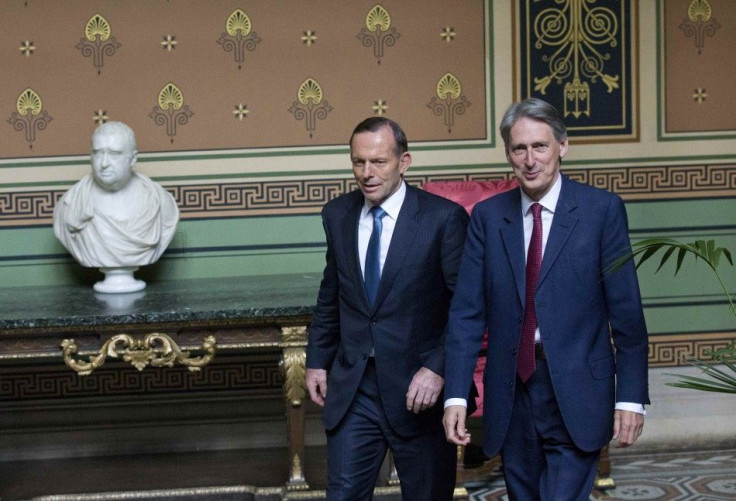Britain Plans 'Information War' Against Russia As It Threatens UK National Security

Britain may soon broadcast the financial secrets to Russian President Vladimir Putin’s inner circle and ruling elite. The Foreign Minister Philip Hammond has expressed his interest on the idea of making their wealth public to "embarrass" them in front of the Russians. It will be part of a response to the ongoing Russian intervention in Ukraine.
The foreign minister warned that the Russian president is quickly modernising the military. Hammond said Russia’s attempt to destabilise eastern Europe poses “the greatest single threat” to the U.K.’s national security, reports the Telegraph. He added that Britain should accept the idea that efforts to offer Russia a place in the post-Cold War era has been “rebuffed.”
British diplomats in Russia and Ukraine have regularly released photos of Russian weapons that only highlighted the role of Kremlin in the conflict. The British government has confirmed that British intelligence agencies continue to recruit Russian speakers as part of the information war.
The wealth of Mr. Putin's inner circle is estimated to be in tens of billions of dollars held in offshore accounts and properties in New York and London. Previous reports have indicated that many of his close associates increased their fortunes in the 1990s when there were mass privatisations of state assets. Mr. Putin's own fortune -- a whopping 96,000 pounds a year as salary, three cars and a flat, had also been met with disbelief, according to The Telegraph.
Hammond said when the British government talks about taking further action and applying more pressure on Russia, a review of strategic communication is taken into consideration. British Prime Minister David Cameron has suggested increasing the budget of BBC to boost its Russian and Ukrainian language services counter the propaganda by Russia’s state television.
The British foreign secretary told the Royal United Services Institute that Britain and its allies have sought to draw out Russia into a “rules-based international system” for two decades since the end of the Cold War. “We worked in a spirit of openness, generosity and partnership, to help Russia take its rightful place,” said Hammond.
However, Hammond believes the world is facing a Russian leader that has challenged the rules-based international system. "President Putin's actions - illegally annexing Crimea and now using Russian troops to destabilise eastern Ukraine - fundamentally undermine the security of sovereign nations of Eastern Europe," said Hammond.
Meanwhile, Russia has decided to put an end to its participation in a consulting group on the Treaty on Conventional Armed Forces in Europe. In a statement released by Russia’s Foreign Ministry, the Russian Federation said it will no longer join the meetings on arms control in Europe.
The announcement is seen as the closing of another communication channel with the West on matters of security, reports Financial Times. Igor Sutyagin, a specialist on the Russian military at the Royal United Services Institute in London, said Russia’s latest move undermines the confidence of the consulting group. He believes Russia is sending a message that it does not want to discuss its concerns anymore.
To report problems or leave feedback on this article, contact: r.su@ibtimes.com.au





















